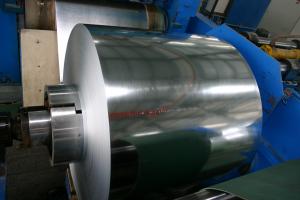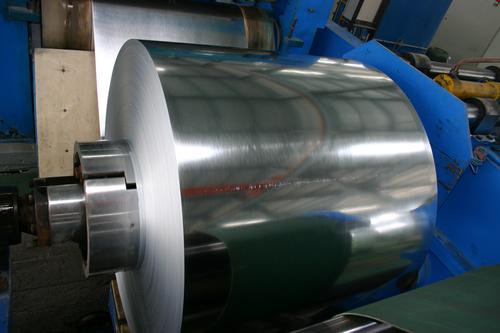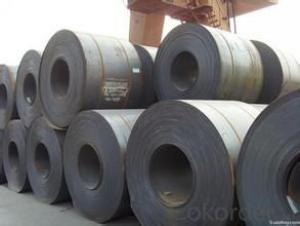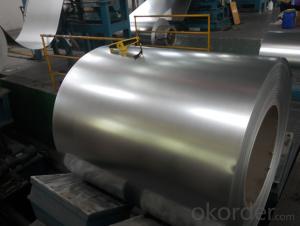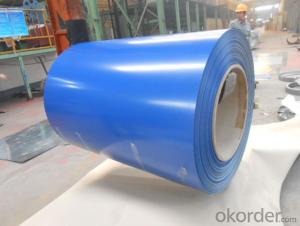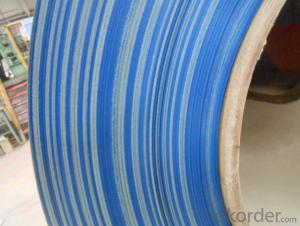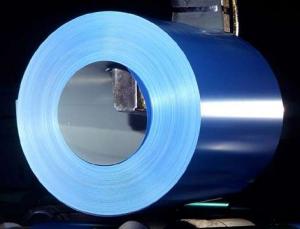HUIFU Prime Hot dip galvanized steel coil
- Loading Port:
- China Main Port
- Payment Terms:
- TT or LC
- Min Order Qty:
- -
- Supply Capability:
- 20000 Mt m.t./month
OKorder Service Pledge
OKorder Financial Service
You Might Also Like
PRODUCT DESCRIPTION:
Standard | JIS G 3302, ASTM A653, EN10327,10143,GB/T 2518 |
Grade | SPCC, DX51D+Z,CS Type A.B.C |
Zinc Coating | galvanized(GI) |
Zinc Weight | 40~140/m2 |
Thickness | 0.18mm~1.2mm |
Width | 762mm-1,250mm |
Coil weight | 3-20 tons |
Surface processing | Zero Spangle |
Coil Chemical Processing | Skin Pass,chromate,dry,oiled |
packing | waterproof paper and galvanized steel protection cover and steel strip packed Or as you request. |
Application | Construction, hardware, home appliances, interior decoration... |
Advantages | 1. Good experience producing and trading on PPGI/galvanized steel coil /steel sheet. With quality assurance and certification . 2.With technology strength and powerful. 3. Shortest delivery time . 4. authentication service and Sincere Caring Services. 5. We strive to be NO.1 of the same trade |
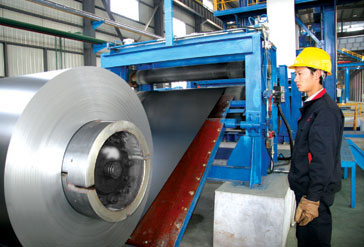
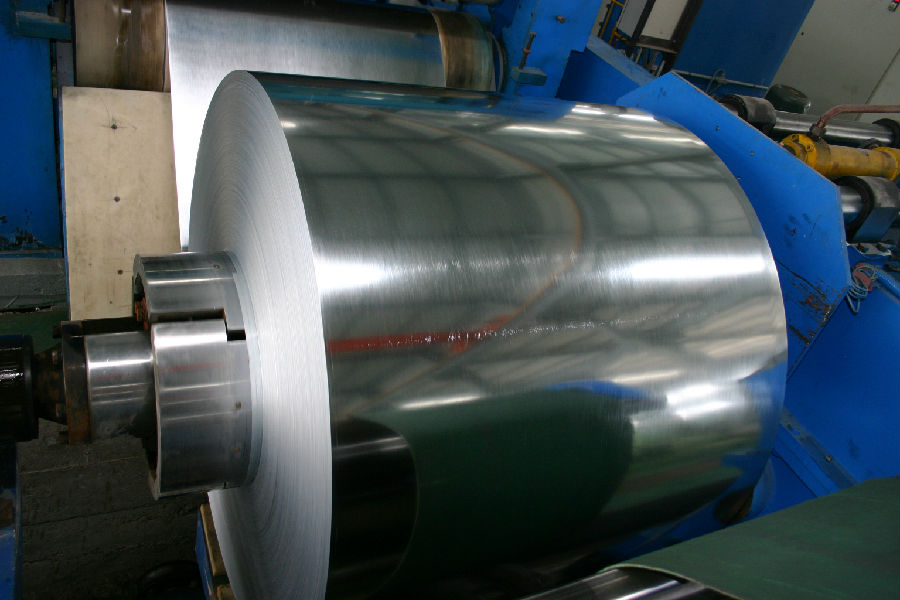
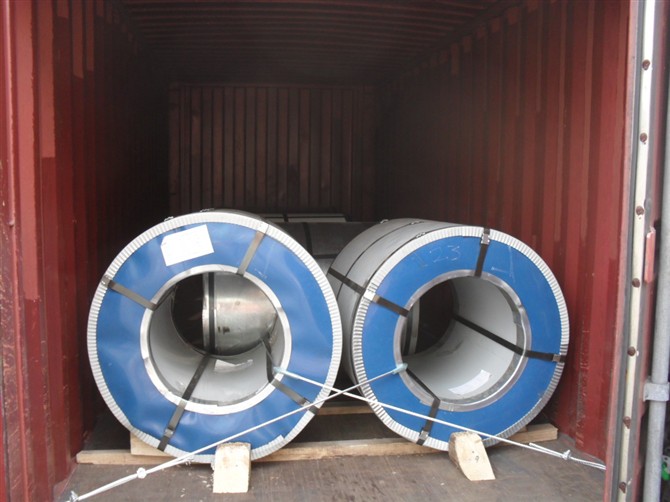
If you have any need of GI or PPGI Coil,please feel free to contact me.
Alena
- Q: Can steel coils be used in the production of agricultural equipment?
- Yes, steel coils can be used in the production of agricultural equipment. Steel is a commonly used material in the manufacturing of agricultural machinery such as tractors, plows, harvesters, and irrigation systems. Steel coils can be formed, cut, and shaped to create various components and structures required for these equipment. The strength, durability, and corrosion resistance of steel make it suitable for withstanding the harsh conditions and heavy workloads involved in agricultural operations.
- Q: What are the different coil packaging methods used for steel coils?
- There are several coil packaging methods that are commonly used for steel coils. These methods are designed to ensure the protection and safe transportation of steel coils, as well as to optimize storage space. Some of the different coil packaging methods used for steel coils include: 1. Strapping: This method involves securing the steel coils with metal or plastic straps. Strapping provides stability and prevents the coils from unrolling or shifting during transportation. It is commonly used for smaller coils or when additional packaging methods are also employed. 2. Stretch wrapping: Stretch wrapping involves using a stretch film to tightly wrap the steel coils. This method provides excellent protection against dust, moisture, and other contaminants. It also helps to keep the coils tightly bound together and prevents them from moving during handling and transportation. 3. Steel banding: Steel banding is a method that involves using steel bands or straps to secure the coils. This packaging method provides superior strength and durability. Steel banding is commonly used for larger and heavier steel coils that require extra reinforcement. 4. Wooden crating: Wooden crates are often used for packaging steel coils that are particularly large or heavy. The coils are placed within a wooden crate, which provides enhanced protection against impacts, moisture, and other external factors. Wooden crating is typically utilized for long-distance transportation or for coils that need to be stored for extended periods. 5. Coil saddles: Coil saddles are specialized devices that are used to package steel coils. These devices are designed to securely hold the coils in place and prevent them from rolling or moving. Coil saddles are commonly used for large coils that cannot be easily strapped or wrapped. 6. Paper interleaving: Paper interleaving involves placing sheets of paper between each layer of steel coils. This method helps to prevent damage caused by friction between the coils. Paper interleaving is often used for coils that have a high surface finish or are susceptible to scratching. Each of these coil packaging methods offers distinct advantages and is chosen based on factors such as the size and weight of the steel coils, transportation requirements, and the desired level of protection. By employing these packaging methods, steel coil manufacturers and distributors can ensure that their products arrive safely and in optimal condition at their destination.
- Q: How are galvanized steel coils different from regular steel coils?
- In terms of their protective coating, there is a difference between galvanized steel coils and regular steel coils. Galvanized steel coils have a layer of zinc coating, which serves as a barrier against corrosion and rust. This process, called galvanization, involves immersing the steel coils in a bath of molten zinc or applying zinc to the surface using different methods. On the other hand, regular steel coils lack this protective coating, making them more prone to corrosion and rust. The zinc layer on galvanized steel coils not only functions as a physical barrier but also provides sacrificial protection. This means that if the coating is scratched or damaged, the zinc sacrifices itself to shield the underlying steel from corrosion. Consequently, galvanized steel coils are highly durable and suitable for applications that require resistance to harsh environmental conditions. These applications include outdoor construction projects, automotive manufacturing, and the production of household appliances.
- Q: What are the common uses of pre-painted steel coils?
- Pre-painted steel coils are commonly used in various industries such as construction, automotive, and appliance manufacturing. They are used for roofing and siding applications, as well as for making durable and aesthetically pleasing metal doors, window frames, and garage doors. Additionally, pre-painted steel coils are utilized in the production of electrical enclosures, air conditioning systems, and various other metal components that require corrosion resistance and a visually appealing finish.
- Q: Can steel coils be coated with fluorescent materials?
- Yes, steel coils can be coated with fluorescent materials.
- Q: I have heard of Cold Rolled steel, Castle Forged steel and Valerian steel and i was just wondering the difference between them.I know Valerian steel is by far the strongest and durable but what about the other two types? Do you know because i haven't read all the books yet.
- Cold rolled steel is referring to rolled steel. It is referring to weapons made from rolled steel that is unrolled and stamped out. In real-life, rolled steel isn't nearly as strong as steel that is cast and forged. Think of a cheap dinner fork that you can easily bend and a nice dinner fork you can't bend at all. The cheap fork is stamp-pressed out of rolled steel and the nice fork is cast. In Game of Thrones, cold rolled steel is crap, but it's cheep and common. Castle forged steel is the best most people have available, much higher quality than cold rolled steel. Presumably it's forged in the castles of Westeros, including King's Landing. Valerian steel is special, rare steel that was anciently forged that is stronger than any other steel. They no longer make Valerian steel since the fall of Valeria. As such, the only Valerian steel available is by getting it from things already made. In real-life, it might be comparable to the extremely high quality steels forged into ancient katanas, ninja fighting swords from Japan. The Lanisters took a sword made of Valerian steel that had been passed down to Ned Stark and had it melted down, recast, then forged into two smaller swords.
- Q: How do steel coil manufacturers handle international shipping requirements?
- Steel coil manufacturers handle international shipping requirements by ensuring that their products meet the necessary standards and regulations for transportation. This includes adhering to specific packaging requirements, such as utilizing appropriate containers and securing the coils to prevent damage during transit. To meet international shipping requirements, manufacturers also need to comply with customs regulations and documentation. They must prepare accurate and complete paperwork, including commercial invoices, packing lists, and bills of lading, to facilitate smooth customs clearance procedures. Moreover, steel coil manufacturers often work with freight forwarders or shipping agents who specialize in international logistics. These professionals have extensive knowledge of shipping regulations, routes, and carriers, and can assist in arranging transportation, negotiating freight rates, and handling all necessary paperwork. Manufacturers may also opt to use intermodal transportation, which involves utilizing multiple modes of transportation, such as trucks, trains, and ships, to transport their steel coils. This allows for more efficient and cost-effective shipping, especially for long-distance or international shipments. Additionally, steel coil manufacturers may consider insurance coverage to protect their products during transit. Insurance can provide financial compensation in case of any damage, loss, or delays during the shipping process. Overall, steel coil manufacturers handle international shipping requirements through careful planning, compliance with regulations, collaboration with experts in logistics, and consideration of various transportation options. This helps ensure that their products reach international destinations safely, on time, and in compliance with all relevant regulations.
- Q: How are steel coils inspected for camber?
- Steel coils are inspected for camber by using a straight edge or a camber gauge, which is placed on top of the coil to measure any deviation from straightness. The operator checks the distance between the straight edge and the coil at various points along its length to determine the amount of camber present.
- Q: What are the different methods of coil flattening for steel coils?
- Coil flattening for steel coils can be achieved through various methods, each having its own advantages and limitations. Some commonly employed techniques are as follows: 1. Roller leveling: By passing the steel coil through a series of rollers that exert pressure, this method flattens the coil. The rollers can be adjusted to achieve the desired level of flatness. Roller leveling is a versatile approach capable of handling a wide range of coil sizes and thicknesses. 2. Precision leveling: This method employs a more advanced leveling machine that applies pressure to specific areas of the coil to eliminate any waviness or defects. Precision leveling is commonly used for high-quality steel coils that require exceptionally flat surfaces. 3. Stretch leveling: Also known as tension leveling, this technique involves stretching the steel coil beyond its yield point, causing permanent deformation and flattening. Stretch leveling is frequently used for thinner gauge coils and effectively eliminates coil set and crossbow defects. 4. Temper rolling: This method subjects the steel coil to a controlled low-temperature heat treatment followed by cold rolling. The combination of heat and cold rolling helps relieve internal stresses and improve flatness. Temper rolling is particularly suitable for coils that require enhanced surface quality. 5. Laser flattening: This advanced method utilizes laser technology to selectively heat and flatten specific areas of the coil. Laser flattening is highly precise and capable of correcting localized defects or unevenness. However, due to its higher cost, it is typically used for smaller coils. It is essential to consider various factors, such as desired flatness requirements, coil dimensions, material properties, and production budget, when selecting the most appropriate coil flattening method.
- Q: How did the growth of the steel industry influence the development of other industries?
- At least three ways: 1. Steel as a material that other industries could use to do things that couldn't be done before (for example, construction (skyscrapers, long bridges, etc.)) or could now be done at much lower cost and hence increased the size of the industry (automobiles, bearings, etc.)
Send your message to us
HUIFU Prime Hot dip galvanized steel coil
- Loading Port:
- China Main Port
- Payment Terms:
- TT or LC
- Min Order Qty:
- -
- Supply Capability:
- 20000 Mt m.t./month
OKorder Service Pledge
OKorder Financial Service
Similar products
Hot products
Hot Searches
Related keywords
